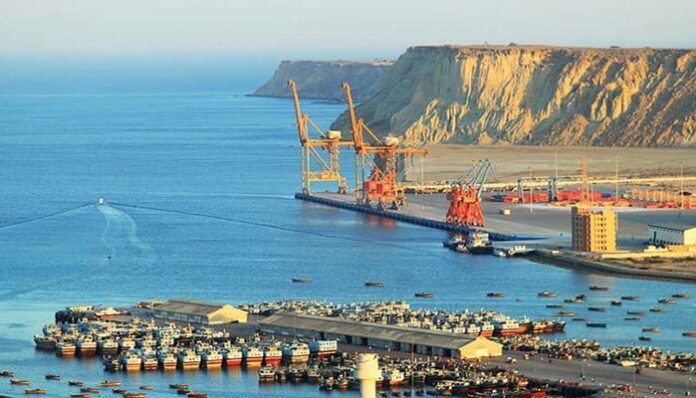He emphasised that Pakistan’s economic circumstances were primarily responsible for only delays in CPEC development. The gathering witnessed the convergence of top officials including LCCI President Kashif Anwar and Senior Vice President Zafar Mahmood Chaudhry, alongside Mr. Wang, Deputy Manager of COPHC, Atif Khan, Convener of the LCCI Standing Committee on Gwadar Coastal Tourism and the chamber’s Executive Committee members.
The COPHC chairman underscored the significance of Gwadar within CPEC, hailing it as the project’s pivotal axis. The first stage of Gwadar’s port and city development, along with the Gwadar Free Zone, has been completed, marking a substantial achievement. Chairman YO BO’s testimony outlined that COPHC’s decade-long stewardship had remarkably transformed Gwadar from a modest village into a thriving modern city, replete with cutting-edge technology.
Chairman YO BO highlighted China’s substantial investments in Gwadar’s growth, spanning construction, airport infrastructure, and healthcare facilities. The Gwadar Free Zone, which came under the auspices of the Free Zone Company in 2018, has already established a vibrant phase one, spanning 25 hectares adjacent to the port. Notably, this area has attracted six companies.
The North Free Zone, sprawling over 900 hectares, is positioned for industrial and warehousing purposes, and Chairman YO BO emphasized its role in processing raw materials for subsequent export.
Addressing Balochistan’s economic disparity, Chairman YO BO highlighted the region’s untapped potential, brimming with natural resources yet plagued by underdevelopment and negligible trade. The Gwadar port, however, is fully operational, equipped to manage both imports and exports.
Chairman YO BO’s visit wasn’t merely a formality; it was an invitation to the LCCI delegation to explore collaboration and investment opportunities in Gwadar. This gesture highlighted China’s eagerness to foster joint ventures and establish industries, not just within Gwadar but also beyond its borders.
LCCI President Kashif Anwar reciprocated with enthusiasm, announcing a forthcoming business delegation to Gwadar. He hailed Gwadar’s paramount role within CPEC, accentuating its potential to catalyze regional connectivity, benefiting not only China and Pakistan but also adjacent nations such as Iran, Afghanistan, and Central Asian Republics. He viewed CPEC as a cornerstone for Pakistan’s industrial and economic revitalization.
Despite the strides taken since CPEC’s inception, Anwar admitted that much remained to be realized. The eight-year journey saw the rise of new infrastructure, from extensive road networks to power plants and free zones. While acknowledging these advancements, Anwar’s focus remained on fully unlocking CPEC’s economic potential, looking toward COPHC and Chinese investors for guidance.
In response to queries from the LCCI, Chairman YO BO detailed the Gwadar port’s operational status, its cargo handling capacity, and plans for the Gwadar International Airport’s full-scale operation. He emphasized the port’s role in facilitating barter trade with Iran, Afghanistan, and Russia, and highlighted Gwadar’s strategic advantages over Port Qasim.
The robust incentives extended to Chinese companies in the free zones, coupled with the prospect of win-win partnerships for Pakistani and Chinese businesses, was a recurring theme. Chairman YO BO revealed COPHC’s pivotal role in CPEC’s second phase, aligned with the One Belt Road Initiative. He detailed avenues for Pakistani investors to engage formally with Chinese companies for joint ventures.
The LCCI gathering concluded on a promising note, setting the stage for enhanced collaboration and camaraderie between China Overseas Port Holding Company and Pakistani business entities. As Chairman YO BO’s vision and accomplishments echoed through the LCCI’s corridors, it is evident that Gwadar’s ascent is poised to shape CPEC’s evolution and Pakistan’s economic trajectory, positioning both nations for a mutually prosperous future.
















